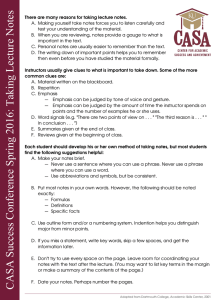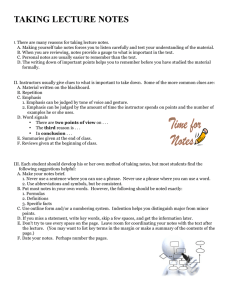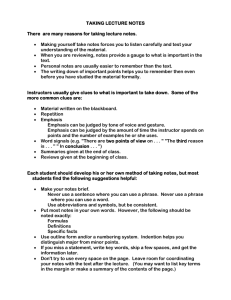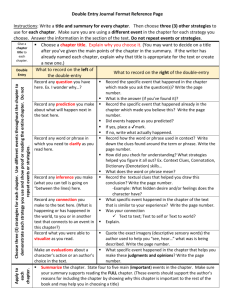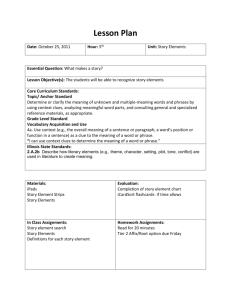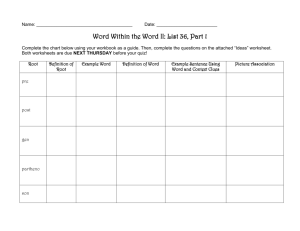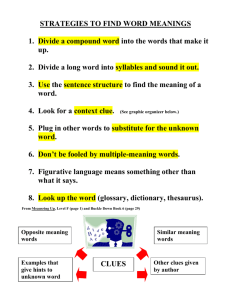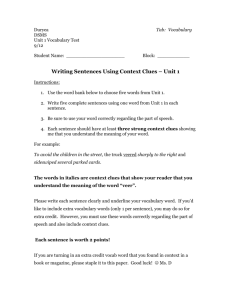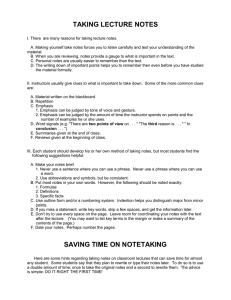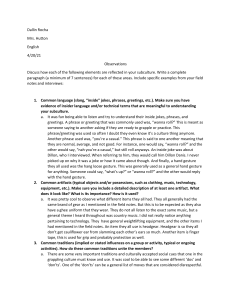Notes
advertisement
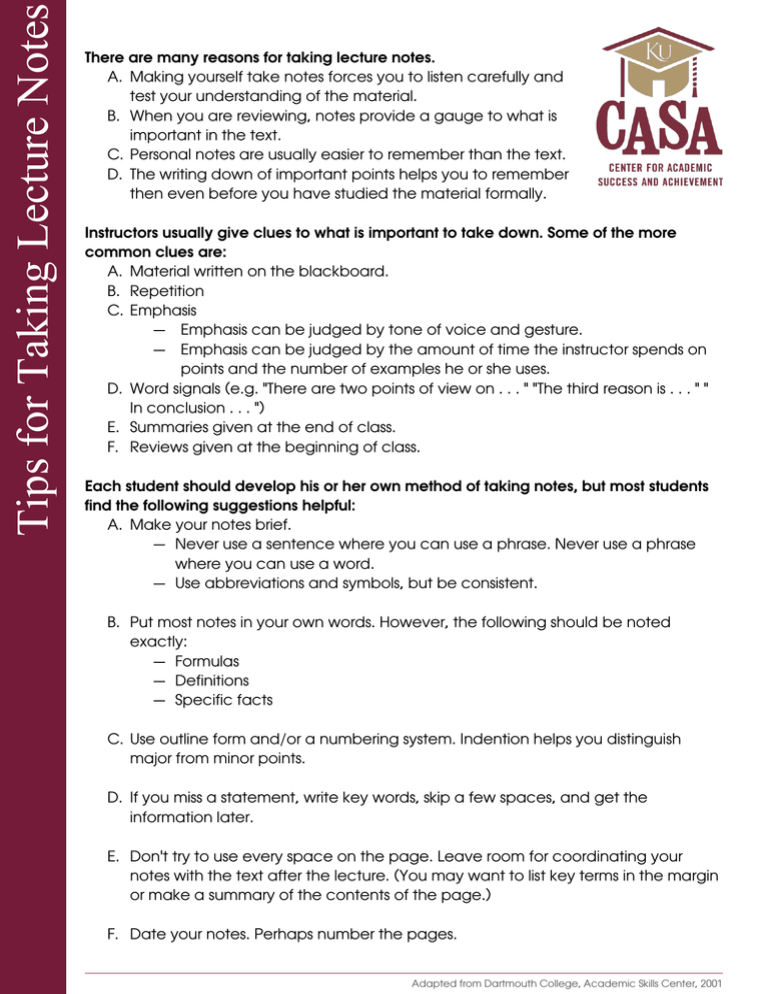
Tips for Taking Lecture Notes There are many reasons for taking lecture notes. A. Making yourself take notes forces you to listen carefully and test your understanding of the material. B. When you are reviewing, notes provide a gauge to what is important in the text. C. Personal notes are usually easier to remember than the text. D. The writing down of important points helps you to remember then even before you have studied the material formally. Instructors usually give clues to what is important to take down. Some of the more common clues are: A. Material written on the blackboard. B. Repetition C. Emphasis — Emphasis can be judged by tone of voice and gesture. — Emphasis can be judged by the amount of time the instructor spends on points and the number of examples he or she uses. D. Word signals (e.g. "There are two points of view on . . . " "The third reason is . . . " " In conclusion . . . ") E. Summaries given at the end of class. F. Reviews given at the beginning of class. Each student should develop his or her own method of taking notes, but most students find the following suggestions helpful: A. Make your notes brief. — Never use a sentence where you can use a phrase. Never use a phrase where you can use a word. — Use abbreviations and symbols, but be consistent. B. Put most notes in your own words. However, the following should be noted exactly: — Formulas — Definitions — Specific facts C. Use outline form and/or a numbering system. Indention helps you distinguish major from minor points. D. If you miss a statement, write key words, skip a few spaces, and get the information later. E. Don't try to use every space on the page. Leave room for coordinating your notes with the text after the lecture. (You may want to list key terms in the margin or make a summary of the contents of the page.) F. Date your notes. Perhaps number the pages. Adapted from Dartmouth College, Academic Skills Center, 2001
